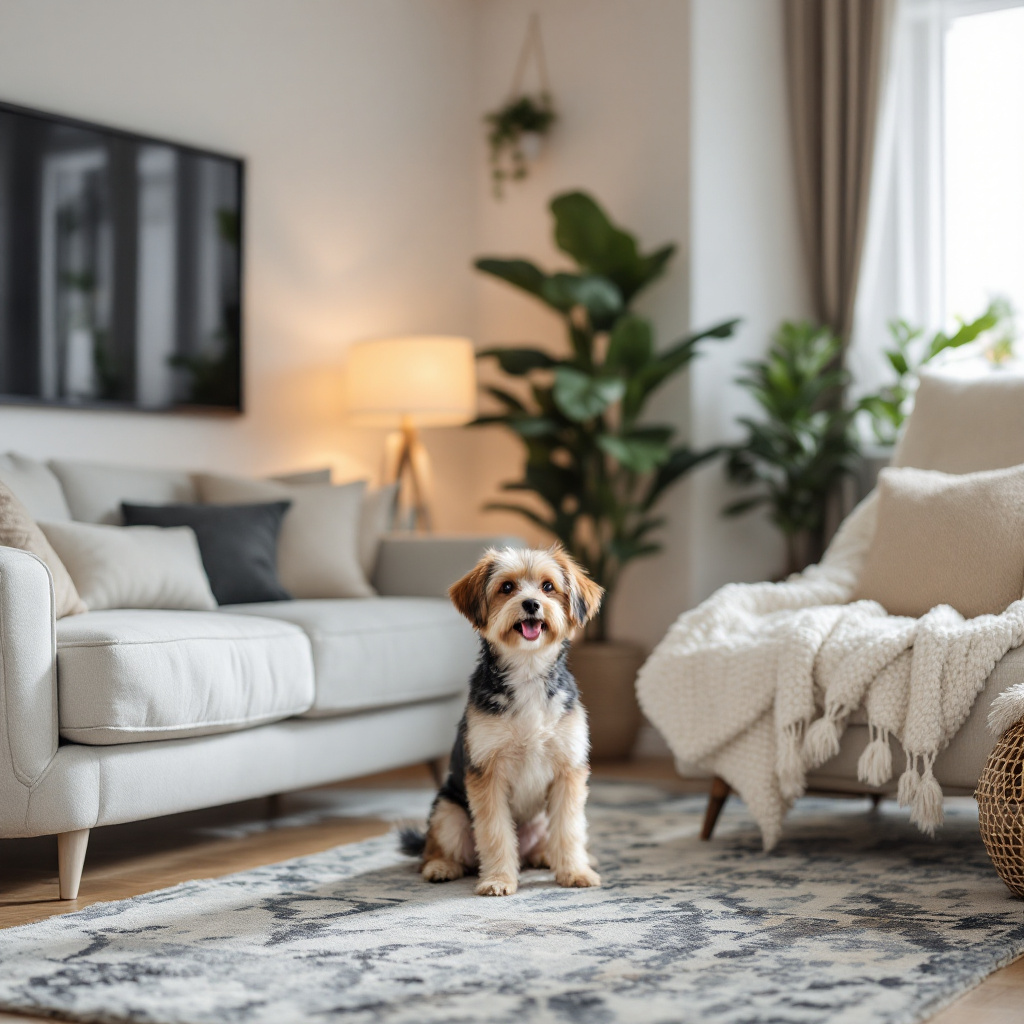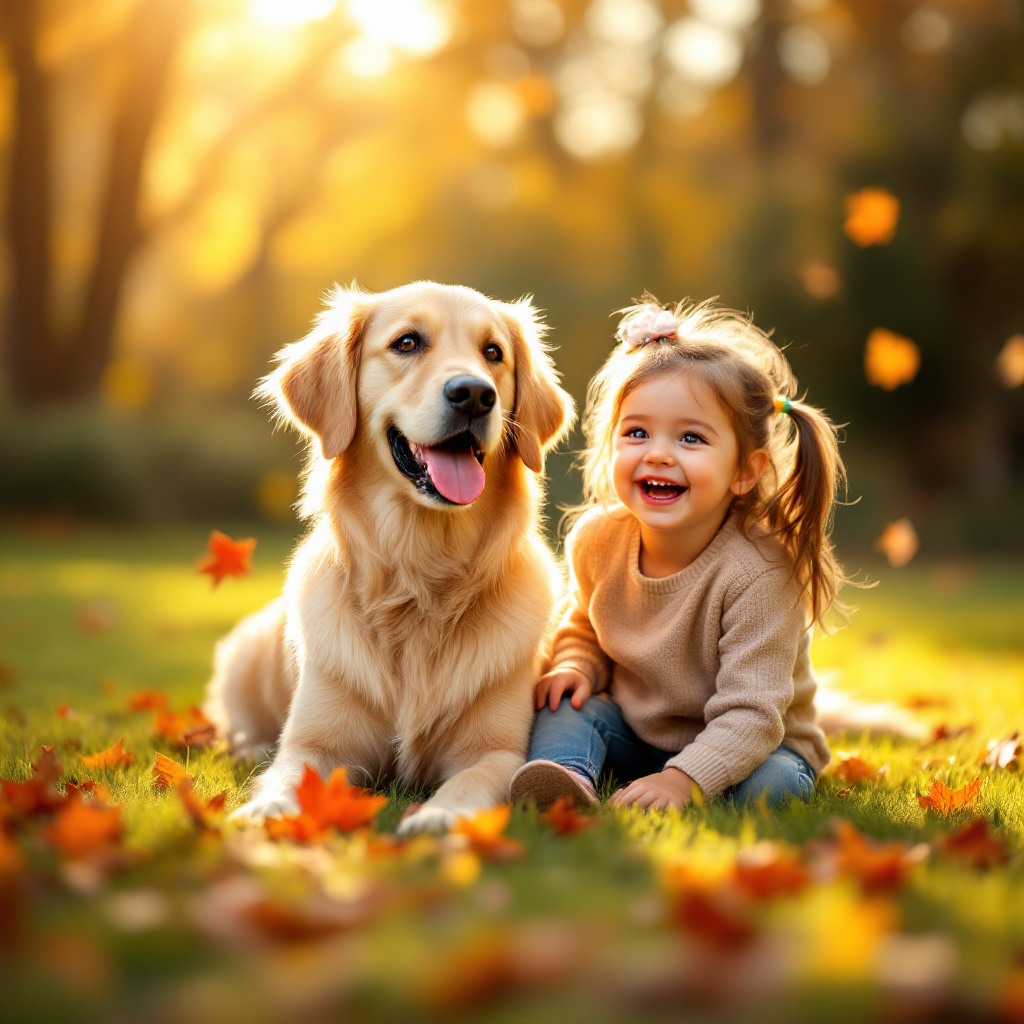Training flat dogs: The key to happiness and harmony in the home
Anyone who lives in a flat and has nevertheless decided to have a faithful four-legged companion often faces the challenge of harmonising the urban environment with the needs of a dog. The Training of flat dogs plays a central role in ensuring harmonious coexistence. We will show you how you can train your little flatmate in a species-appropriate way and make his life in your home a joy!
Why is the training of flat dogs important?
Training a puppy requires patience and consistency - two qualities that are essential in Training of flat dogs are particularly important. But why is it so essential?
- Indoor dogs often have little space to release excess energy.
- Barking can lead to conflicts with neighbours.
- A well-trained dog contributes to joy and relaxation in your own home.
A trained flat dog is not only easier to handle, but also happier and more balanced.
The basics of house-training and house-cleaning
There's perhaps no more stressful time than the first few weeks with an unfinished puppy in your home. But don't panic - house-training is one of the first and most important tasks in dog training.
- Regular time-outs: Take your dog outside regularly, especially after sleeping, eating and playing. This helps to channel natural needs.
- The right reward: Praise and treats immediately after successful outdoor business strengthen positive associations.
- Patience and forbearance: Small accidents are part of it. Stay calm and optimistic, because negative reactions often have the opposite effect.
Strategies for controlling behaviour
Sometimes a small dog can have a large vocal volume. Learning when and why your dog barks is the first step to getting the behaviour under control.
Tips against excessive barking
- Understanding the triggers: Dogs often bark out of fear, boredom or excessive protective instinct. Identify the triggers in order to take targeted action.
- Teaching the command "Quiet": Practise the "quiet" command consistently and reward your dog when he is quiet.
- Distraction through toys: Toys that challenge the dog mentally can help to reduce excessive barking.
Mental and physical exercise
A common question is: How do you keep a dog busy that spends most of the day indoors? Without a doubt, a busy dog is a well-adjusted dog!
Activities for the home
Fortunately, there are many ways to occupy and train your dog in a limited space:
- Sniffer carpets: These provide an excellent opportunity to train your dog's nose and hide treats at the same time.
- Clicker training: Supports positive reinforcement and creates clear communication between you and your dog.
- Intelligence toys: Promote cognitive training and are ideal for rainy days.
All these activities help to build a deep bond between you and your furry friend!
The social aspect: Here's to good neighbourliness!
Another aspect of the Training of flat dogs concerns interaction with the environment - and this inevitably includes respect from the neighbours. Having a dog in the apartment complex means being considerate of others and at the same time fulfilling the dog's needs.
Adaptation to the neighbourhood
- Control of noise level: Train your dog to stay calm when you are not there to ensure the well-being of your neighbours.
- Socialisation: Plan walks at times when there are fewer people around to gradually acclimatise your dog to the environment.
- Inform flatmates: Informing neighbours in good time creates understanding and can help with any problems.
Additional tips for everyday life
Anyone who shares everyday life with a flat dog should keep a few important tips in mind to avoid stressful situations:
- Patience is a virtue: Training progression is individual and requires calm and understanding.
- Slow introduction to new routines: Whether it's new neighbours or new exercise routines - gentle adjustments are the key.
- Be careful when choosing furniture: The potential for accidents and sources of danger should be minimised.
With careful planning and loving training, living with a flat dog can be a real pleasure. Every dog is an individual with its own needs and characteristics. But with commitment and understanding, any breed of dog can be trained to be the perfect flat dog!
In the world of Training of flat dogs so there are no secrets, just ways of thinking and techniques to make the adventure with your furry partner even more wonderful. Happy training!
FAQs
How can I exercise my dog indoors?
Various games and exercises help to keep dogs occupied indoors in a meaningful and species-appropriate way. Intelligence games, nose work and dog tricks are particularly helpful. These not only promote mental exercise, but also strengthen the bond between humans and dogs.
How do you train a dog at home?
Training a dog at home starts with a calm and consistent environment. Use positive reinforcement such as praise and rewards to reinforce good behaviour. Regular, short training sessions keep the dog mentally engaged and make it easier to learn new commands. It is important to be patient and not give up if results are not immediately visible.
How do I start dog training?
It can never start too early: Start training your dog as soon as you have taken your four-legged friend into your home. Show him clear rules straight away and don't allow him to do anything he shouldn't do later on to help him familiarise himself. If you can start dog training as a puppy - all the better!
How can I control my dog's barking?
Controlling barking starts with finding the cause. Identify when and why your dog barks. Train the "quiet" command and offer distractions using favourite toys or a chew stick. Consistency and patience are key to achieving long-term success.
How do I do justice to my dog in a flat?
Indoor dogs need regular exercise and mental challenges to be happy and healthy. Plan frequent walks and integrate mental games into everyday life. Also make sure they have a balanced diet and offer them a cosy place to retreat to.
Author
-

David is a passionate aquarist with more than 20 years of experience in setting up and maintaining freshwater and saltwater aquariums. He specialises in the biodiversity of aquatic ecosystems, aquascaping and the species-appropriate keeping of aquarium fish. His articles on haustierewissen.de are a treasure trove for aquarium enthusiasts looking for sound advice and creative ideas for their underwater worlds.
View all posts




